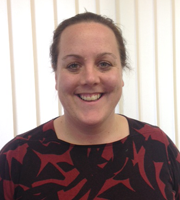Felicity Begley, a workforce transformation manager in Lincolnshire, reflects on what she has learnt since she qualified as a physiotherapist

I qualified as a physiotherapist from Salford University in 2005, with aspirations to work within the North West in an Acute Trust - gaining Band 5 experience in core rotations.
In 2005 competition for Band 5 physiotherapy posts was tough, with over 300 new graduates applying for each post within some trusts. I applied for over 60 jobs and was only successful in gaining 6 interviews.
Keep an open mind
After what felt like four very long months I was successful in gaining a Band 5 physiotherapy post in Lincolnshire working in the community on a six-month rotation between intermediate care, long term conditions team and a rehabilitation ward in a community hospital. This wasn’t the location I thought I would live in or the post I envisaged but I kept an open mind. I was optimistic that this role would be an opportunity to work in a place I’d never been to and in a clinical area I hadn’t experienced as a student.
As I’ve always had a passion for animals, a year after qualifying I decided to embark on an MSc in Veterinary Physiotherapy. I was very fortunate that my Trust allowed me to go part-time so I could study at the same time as completing my Band 5 rotations. During this time, I used leadership skills to build a case for the Band 5 physiotherapists to undertake an MSK rotation within the Trust. This was my last rotation and I was successful in obtaining a Band 6 static MSK post.
Be flexible
I now knew I wanted to specialise in MSK and remain in the NHS but I also wanted to work part-time as a veterinary physiotherapist. I was open with my manager and by being flexible about where I worked, I had the opportunity to work part-time in a difficult to recruit area.
I would always recommend being open with your managers about what you want as part of your progression. Consider the needs of the area you are working in and see if you can come up with a solution that works for everyone.
Develop leadership skills
I have had the opportunity to gain lots of experience in clinical physiotherapy and three years ago I completed an Emerging Leaders Programme. When I graduated in 2005 I would have never seen myself as a leader and this course enabled me to see myself differently both professionally and personally.
Make sure you have supervision and get a coach
As part of this programme I was assigned a coach, something I would recommend for all professionals as well as the clinical supervision. Having a coach really made me question everything I was doing, and gave me a new perspective from a non-physiotherapy background.
Look outwards at opportunities
This experience made me look outwards, from an organisation I’d been working in for ten years, and seek new opportunities. I subsequently gained my first non-clinical post working for Health Education England and now feel I can make an impact for our health and care workforce whilst still keeping up my clinical skills working part-time.
Network and get involved - locally, regionally and nationally
Up until this year I had not been involved with the CSP Regional networks and was missing out on networking with my peers, sharing knowledge, maintaining CPD as well as learning about opportunities. I am now fortunate enough to co-chair the East Midlands regional network and would recommend the networks to all new graduates as a way of linking in with the CSP and its members.
Find out what your local network or country board has to offer and if you live in the East Midlands, I hope to see you at one of our forums soon!



































